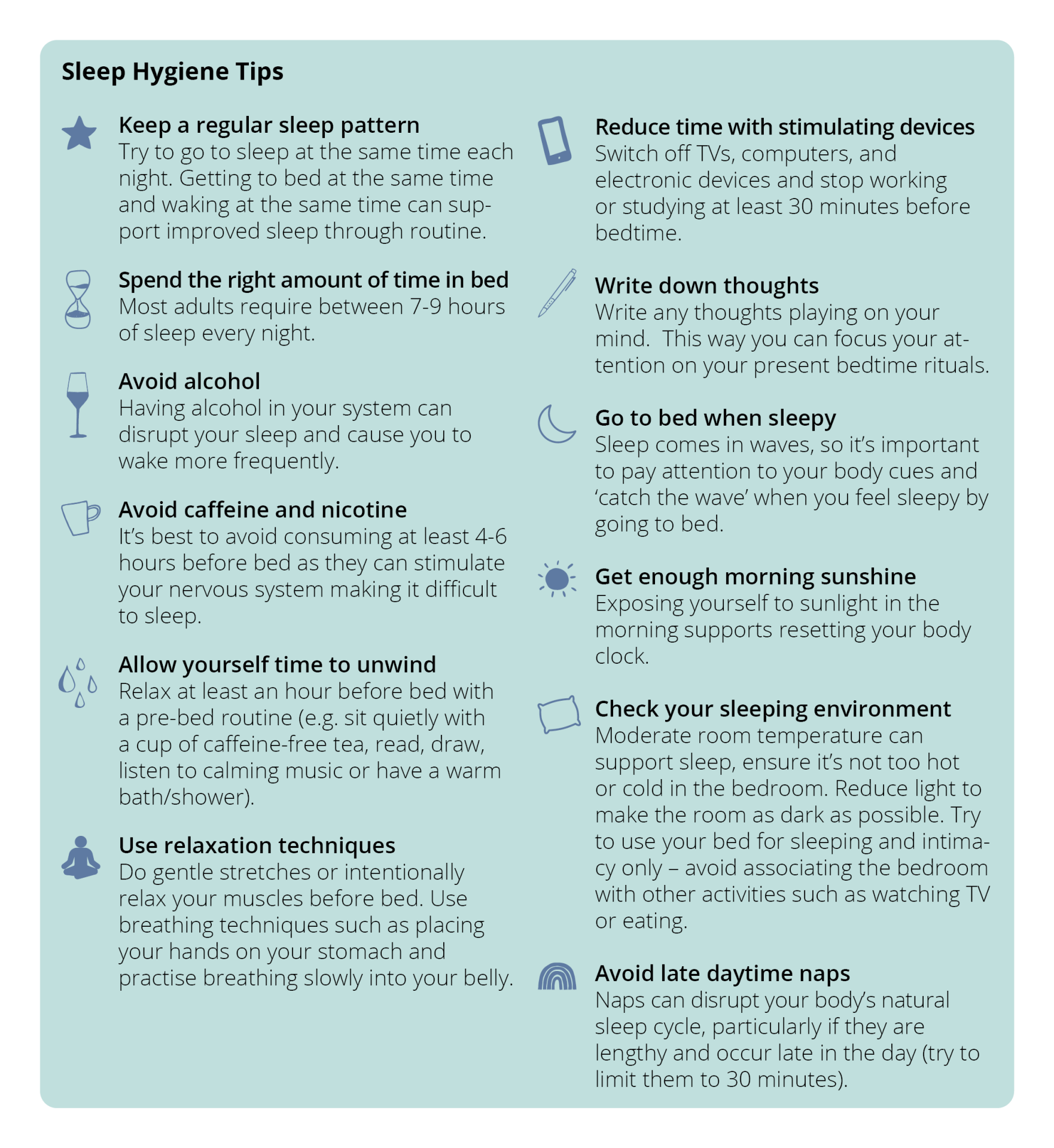Your well-being after a road crash
Commonly, experiencing trauma can affect your physical and mental health. Whether you are recovering after a road crash or supporting someone who is impacted, it is helpful to prioritise self-care strategies to support your overall well-being. Routine can be one of the first things to go out the window when you’ve experienced a potentially traumatic event, so try to regain some sense of control by incorporating activities that support your health and well-being and help promote healing.
Stay Connected
Sometimes it can be challenging to want to connect with others when you’ve gone through a difficult event. There is a lot of research that highlights how social support is related to better physical and mental health outcomes, with some studies suggesting that the resilience of an individual is very dependent on the supportive social systems they have. Try reaching out to someone you trust during this time, who can provide positive practical and emotional support. Ways to stay connected include:
- Make time to connect with people whom you can trust, either in person, on the phone or online
- Join a community or support group.
- Invest in activities that nurture your relationships (e.g. engaging in hobbies or exercise together or catching up one-on-one without distractions or electronic devices)
- Spend time with pets or furry friends.
Physical Health
Taking care of your physical health is vital in recovery from a traumatic event. Research indicates that physical activity plays a positive role in promoting physical and mental health, mental resilience, well-being, and quality of life after traumatic events.
After experiencing trauma, it is also beneficial to fuel your body through regularly eating healthy food. Making small tweaks and changes to improve our nutrition can have significant impacts on our bodies, particularly when it is recovering from trauma. Ways to look after your physical health include:
- Get involved in exercise or an activity that you are interested in.
- Make it social – exercise with a friend or family member.
- Start small and build up – even a short brisk walk can influence your mood.
- Incorporate more vegetables into your day and reduce your sugar intake.
**Check with a professional (Dietician or GP) before making large nutritional changes to your diet.
Emotional Wellbeing
Taking time to look after your emotional well-being forms a holistic approach to healing after trauma. Checking in with yourself and acknowledging all the feelings you are experiencing allows you to sit better with bigger emotions better over time. Identifying an intense emotion, and then labelling, or naming what you believe it is, can reduce stress and anxiety in the brain and the body.
Other ways to look after emotional wellbeing:
- Practicing mindfulness or mediation
- Use relaxation techniques – Breathing, grounding, distraction.
- Embrace and use humour. Humour can help to down regulate the nervous system and boost wellbeing.
- Engage in hobbies or activities that calm or relax you e.g. reading, playing music, cooking, being in nature, painting etc.
Sleep
Following road trauma – whether you were directly involved in it, lost someone you cared about or witnessed a crash – your ability to enjoy a good night’s sleep may be affected. As your mind attempts to process and effectively ‘file’ away properly the memory of the event, this can sometimes mean you have nightmares, flashbacks, or are constantly thinking about what happened, which can impact your ability to fall asleep or get a quality night of rest.
Sleep hygiene
What we do throughout the day and at bedtime impacts our ability to get a good sleep. The Government of Western Australia’s Centre for Clinical Intervention has developed a fact sheet that includes practical and helpful tips for better sleep.

By making changes throughout the day and into the evening, we can reprogram our bodies, and improve the quality and quantity of our sleep.
Nightmares
Nightmares can occur immediately after experiencing or witnessing a road trauma, or they may begin several weeks later. It can be common to be woken from a distressing nightmare, feeling terrified and upset.
Nightmares and flashbacks can occur as they support processing intense experiences, like road trauma so that we can make sense of what happened and allow our memory networks to “file” the event away as best as possible.
Over time nightmares and flashbacks should gradually lessen in frequency and intensity. If you find nightmares continue to be a problem for you 3-4 weeks after the incident, it’s a good idea to speak to your doctor and/or see a mental health professional.
Professional Help
The majority of people deal with traumatic experiences without professional help. They rely on supportive family and friends to help them feel calm and safe again. Sometimes reactions to trauma can be unexpected, overwhelming and prolonged. If you are worried or concerned about how you are coping, you can seek support from your General Practitioner (GP) who can give helpful advice on how to proceed including referral options in your local area. This may include seeing a counsellor or psychologist, through various services.

Online Sleep Support
The Sleep Health Foundation is public-facing and is the leading advocate for sleep health in the Australian community. It aims to raise community awareness about the value of sleep, how to improve it and address common sleep disorders. For more sleep information access their website at https://www.sleephealthfoundation.org.au/


